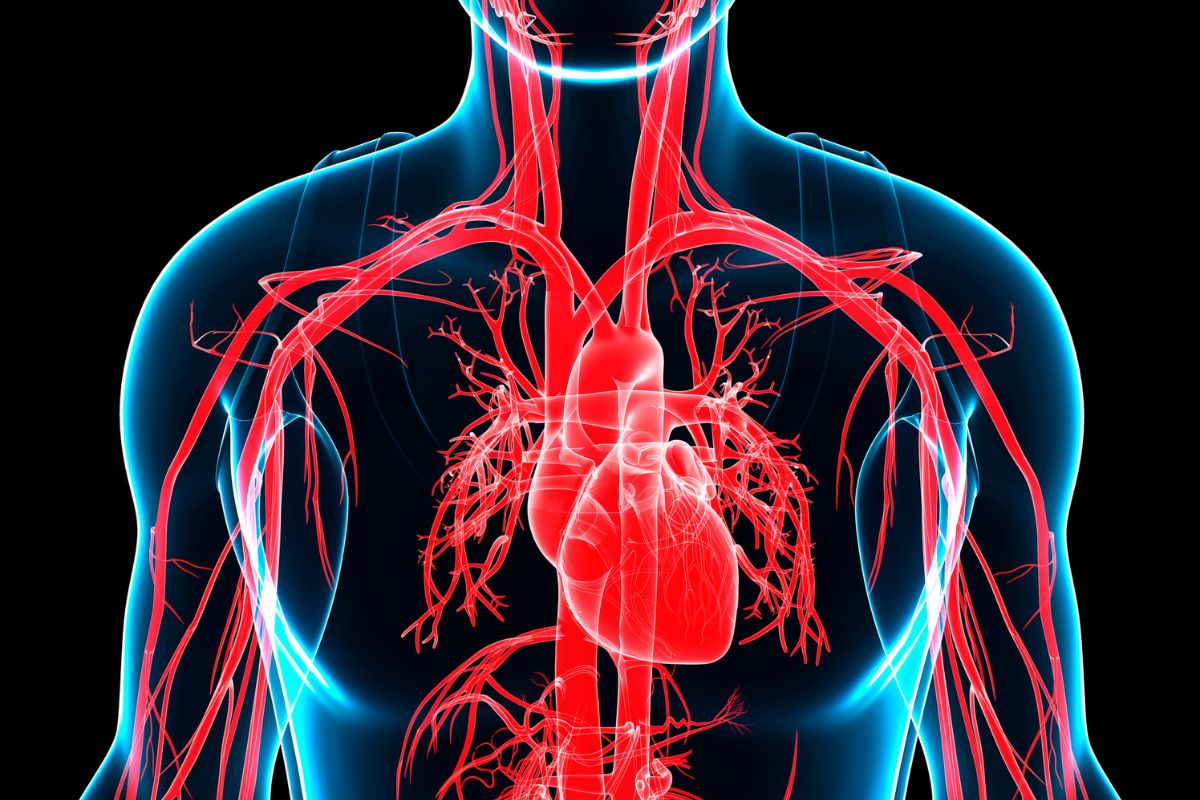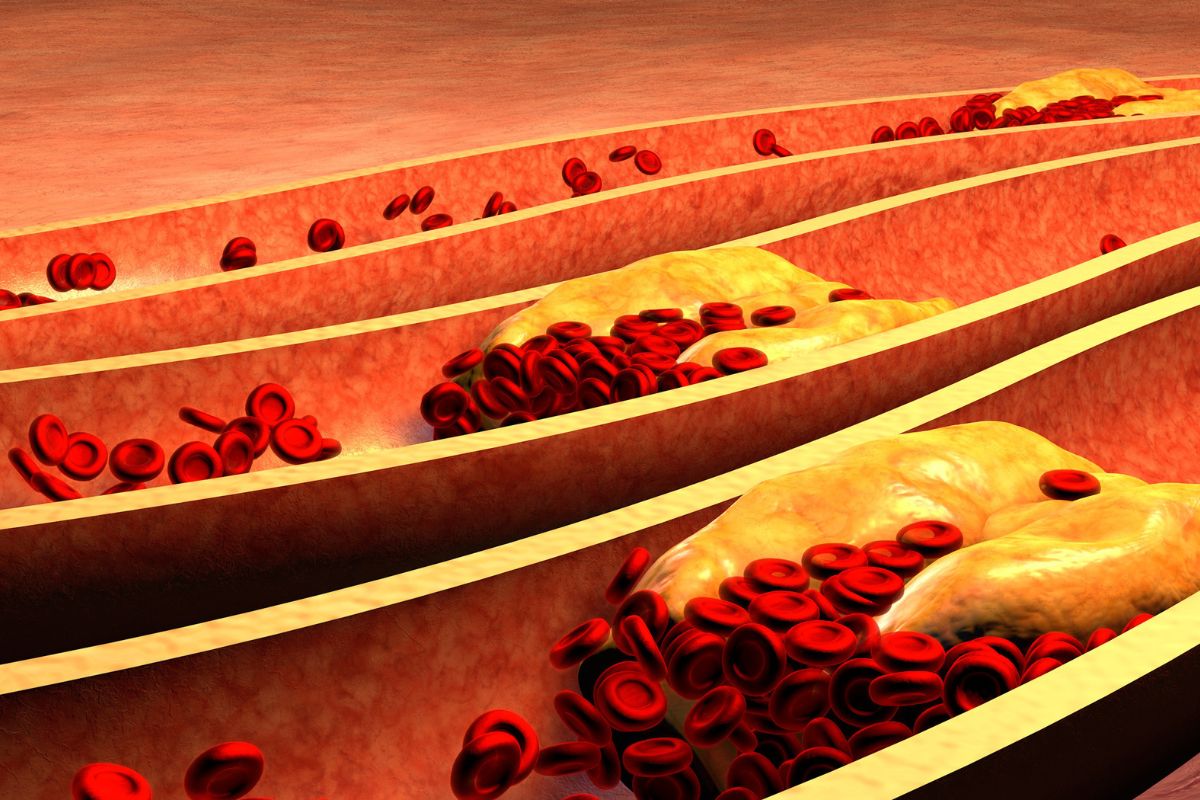Tobacco is one of the most damaging substances known to man. Unfortunately, it’s also one of the most addictive, which is why so many of us struggle to quit.

Long-term tobacco use is associated with an increased risk of heart attacks, strokes, and even death.
When we smoke, every organ in our body is affected, and our arteries can take a pretty big hit, too.
When our arterial health is compromised, our risk of cardiac events and premature death increases significantly.
So, if you’re ready to quit smoking, is it possible to improve the damage that’s been done and give yourself a better quality of life?
How Does Smoking Damage The Body?
Tobacco has serious effects on the body, however you smoke it. Tobacco contains many damaging chemicals, including:
- Lead
- Nicotine
- Hydrogen cyanide
- Arsenic
- Ammonia
- Benzene
- Radioactive elements
In fact, cigarettes contain at least 69 carcinogenic compounds that are known to damage human health.
Although these 69 compounds are most likely to cause cancer, there are around 250 harmful chemicals in a cigarette, all of which can seriously affect our health.
In addition, most long-term smokers are more likely to die younger and are at a higher risk of developing serious health conditions compared to nonsmokers.
When we smoke, our respiratory, circulatory, skin, eyes, and reproductive systems are all affected.
Smoking increases the risk of death from all causes, not just tobacco related deaths. Some of the most serious effects of tobacco consumption on the body include:
- Raised heart rate and blood pressure
- Damage to the lungs air sacs
- ‘Stickier’ blood that’s more prone to clotting
- Less blood flow to the extremities
- Reduced bone density
- Genetic damage to the sperm
- Gum disease
- Premature aging
- Irritation of the stomach and intestines
- A diminished sense of taste and smell
All of these effects can increase our risks of certain cancers, blindness, ulcers, impotence, strokes and heart attacks, atherosclerosis, and more.
Some of the most serious conditions associated with tobacco use include:
- Lung cancer
- COPD
- Infertility
- Diabetes
- Blood clotting
- Peripheral artery disease
- Higher risk of heart attacks and strokes
How Smoking Damages The Arteries

When we smoke, our arteries are more susceptible to a build-up of plaque.
The chemicals found in tobacco can make the walls of our arteries sticky, which causes fatty deposits to stick to our arterial walls, and eventually clog our arteries.
When our arteries become clogged, there’s less room for blood to flow freely around the body.
The arteries that carry blood to the heart and the brain are most likely to become clogged when we smoke.
If the arteries to the heart are damaged, the risk of having a heart attack is increased.
If the arteries to the brain are clogged, you may be more likely to experience a stroke.
Atherosclerosis is the term used to describe the process where arteries become blocked with plaque or atheroma, the fatty substances that increase our risks of heart attacks and strokes.
Atherosclerosis can harden or narrow the arteries over time, which reduces the supply of oxygenated blood to tissues and organs in the body.
This reduced blood flow can cause symptoms of angina, and if a plaque build-up bursts in the artery, blood clots can develop and travel to other parts of the body.
This can cause dementia, heart attacks, erectile dysfunction, and strokes.
Atherosclerosis is a common condition, and it’s estimated that almost half of all Americans between the ages of 45 and 84 may have it and not know.
Can Quitting Smoking Improve Arterial Health?
If diagnosed and treated early, people with atherosclerosis can live active and healthy lives.
However, if the disease progresses enough, it can cause serious medical emergencies and even be fatal.
Atherosclerosis is believed to progress over many years.
But if you’ve been diagnosed with it (or you’re worried about your arterial health), can quitting smoking improve your condition?
Fortunately, most of the damage that smoking causes to your body is reversible – if you quit in time. The same may be said for the damage caused to your arteries.
One study examined the arterial health of former smokers who have quit for ten years, current smokers, and non-smokers.
The study found that the arteries of people who had quit for a decade were almost no different from the arteries of lifelong smokers.
This suggests that arterial damage is reversible. However, it may take more than a decade to undo the damage.
This is why quitting as soon as possible is essential for you and your health.
These findings suggest that arterial damage from smoking may not be permanent.
However, more research is needed to find out more.
We know that even if quitting smoking can’t permanently reverse the damage, it will significantly reduce a build-up of plaque in the arteries, decreasing your risk of strokes, heart attacks, and more.
When we quit smoking, our health begins to improve almost immediately.
By quitting smoking, we can lower our cholesterol, reduce the stickiness of our blood, make breathing easier, return our heart rate to normal, and within just one year, our risk of heart disease and heart attacks is halved.
After 15 years of cessation, this risk becomes almost in line with someone who has never smoked.
Another study found that young smokers with impaired arterial function could reverse the damage just one month after quitting smoking.
PET scans showed that abnormal coronary artery function had normalized, and this progress was preserved six months after the subjects had quit smoking.
The Bottom Line
Our bodies are incredibly forgiving. While it’s not always possible to avoid the long-term damage of smoking, even after quitting, the research shows that significant portions of this damage are reversible.
Keeping our arteries in good shape is key to living a long, healthy life.
If you quit smoking, you’ll give yourself a fighting chance at reducing the build-up of arterial plaque associated with smoking.
It may take years to reduce your risk, but the science shows there’s real hope, even for long-term smokers.
- Understanding Male Reproductive Health: A Complete Guide - February 2, 2025
- Simple Healthy Skin Habits for Radiant Skin - December 6, 2024
- Unlocking the Connection Between Nutrition and Mental Health - December 3, 2024








